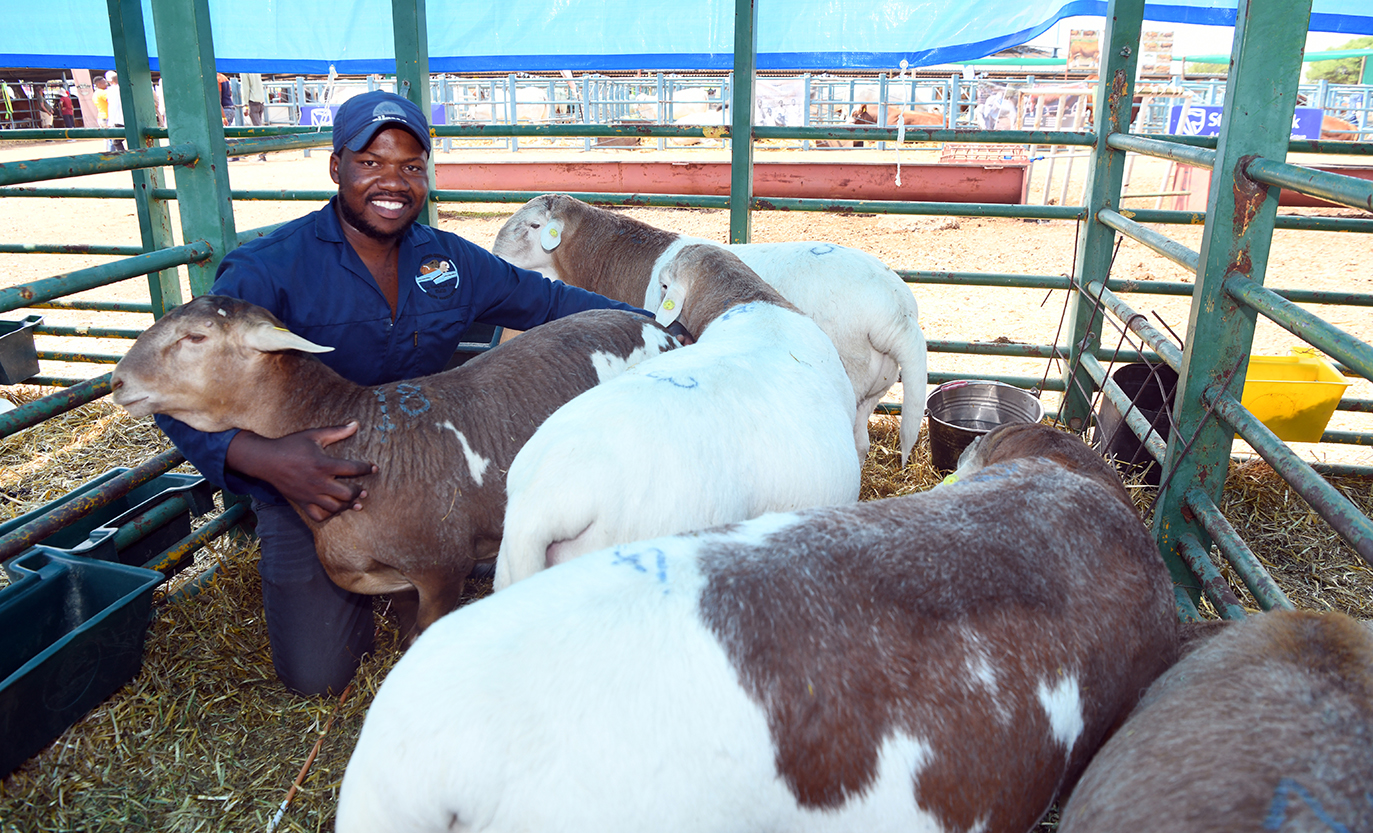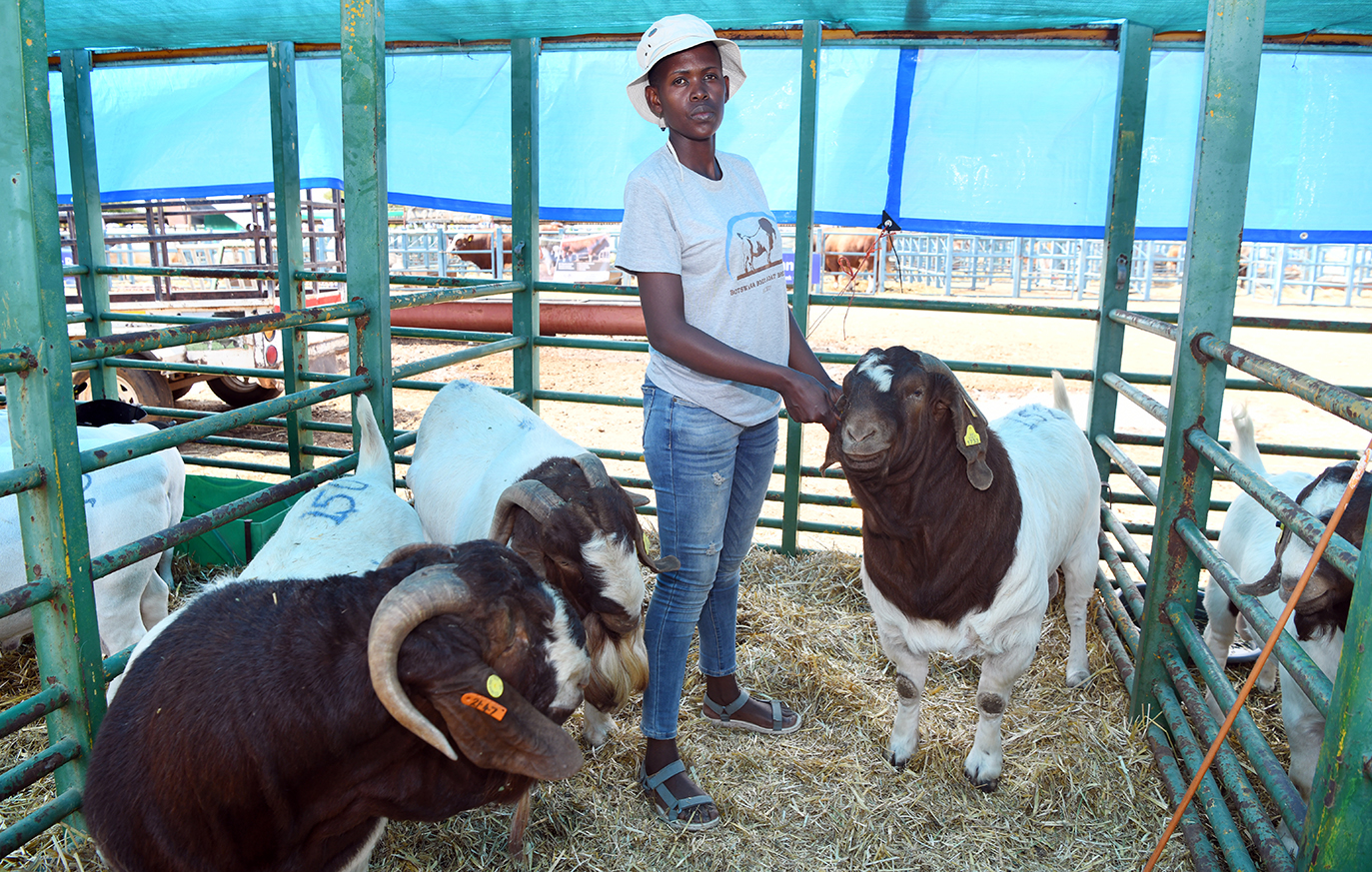Youths position themselves as small stock farmers
14 Nov 2022
Some young farmers are determined to play a role in positioning Botswana as a leader in the production of quality small stock.
Such farmers can be counted on as the future of the agricultural sector and stand to benefit arising from opportunities created by President Dr Mokgweetsi Masisi decision to secure small stock market in other countries.
The young farmers were part of the recent National Agricultural Show and have vowed to address the declining small stock numbers, focusing on quality and preserving genetics.
Currently breeding from 700 hectares leased ranch, Ms Kenanao Pasela from Sunnyside Farm along the Lobatse-Ramatlabama road believes small stock production is a profitable undertaking.
Her farm base called Phillip Van Stud Breeders currently has a breeding stock of 120 sheep (blackhead Dopers) and 110 Boer Goats.
She says despite challenges of market accessibility to sell meat, opportunities in stock farming abound.
Inspired by her partner Mr Phillip Van Schalkwyk, Ms Pasela’s love for small stock farming started in 2008.
She says it was not an easy undertaking especially at the beginning as farming requires patience and determination.
The mother of two says just like any other business, farming requires love, dedication and passion to thrive.
“It is all about being passionate and eager to succeed. We are engaged 24 hours including my children. It is a family business and it takes everyone’s effort minimise challenges,” says Ms Pasela.
With a number of years in the industry, Ms Pasela has been able to learn from others and widen her market base through participation at various agric shows across the country since 2010.
She has shared her future interest in cattle production to broaden her scope in the industry.
“I want to increase the number of my breeding stock and even venture into cattle production,” she says.
She added that livestock production is not an expensive undertaking as some people perceive, adding all it requires is undivided attention and keeping a number that one will easily manage.
Ms Pasela says to run a sustainable business in livestock production, 70 per cent of the feed must be provided by the farm while 30 per cent should be a supplement.
She appreciates those who have shown their support to growing the sector citing her donation of a sheep and a ram to First Lady Neo Masisi at the agric show.
“It was not the first, we always donate to other farmers who have shown eagerness to engage in small stock-related business. We do whatever it takes to market our business,” she said.
Ms Pasela agrees that shortage of land is among the challenges that hamper small stock production.
Another youthful small stock farmer, Mr Toy Katjiova of Katjiova Quality Goat Breeders at New Xanagas is at the helm of a family business having taken over from his father who has been breeding small stock since the 90s.
The Katjiova family breeds Kalahari Red and Boer Goats as well as the Meat Master and Veldt Master breeds of sheep.
He says all the breeds on the farm have proved to be doing well even in an arid environment and testifies that small stock production had a satisfactory market.
Despite rearing in an area challenged by among others weather challenges and the longest dry seasons, Mr Katjiova says his small stock is able to thrive mainly dependent on the natural pasture.
“Currently we are breeding with 250 Boer goats, 100 Kalahari Red and 120 Sheep,” he says.
He was introduced to small stock farming by his father Auvanga Katjiova, who has been a small stock stud breeder of repute since 1992.
“I took over the family business in 2013 and have since upgraded the business by marketing it through social media platforms and various livestock exhibitions,” he says.
Mr Katjiova says the growing number of people who are showing interest to venture into small stock production is a positive indicator towards the growth of the sector hoping it will help address the declining number of small stock with the goat population in the country currently at 1.2 million while sheep stands at 270 000.
Just like Ms Pasela, Mr Katjiova believes that commitment, passion and perseverance are paramount to the success of any business.
“My family is sustained by the business and it has greatly improved our livelihoods. I encourage young people like me to venture into it.”
He explains that the small stock sector is highly competitive, which encourages farmers to improve their stock, preserve the best breeds and sell at a satisfactory price.
“Everyone in the sector is working hard to improve their breeding animals to stay relevant in the market. The competition is healthy as it benefits the sector,” says Mr Katjiova. ends
Source : BOPA
Author : Moshe Galeragwe
Location : GABORONE
Event : interview
Date : 14 Nov 2022







